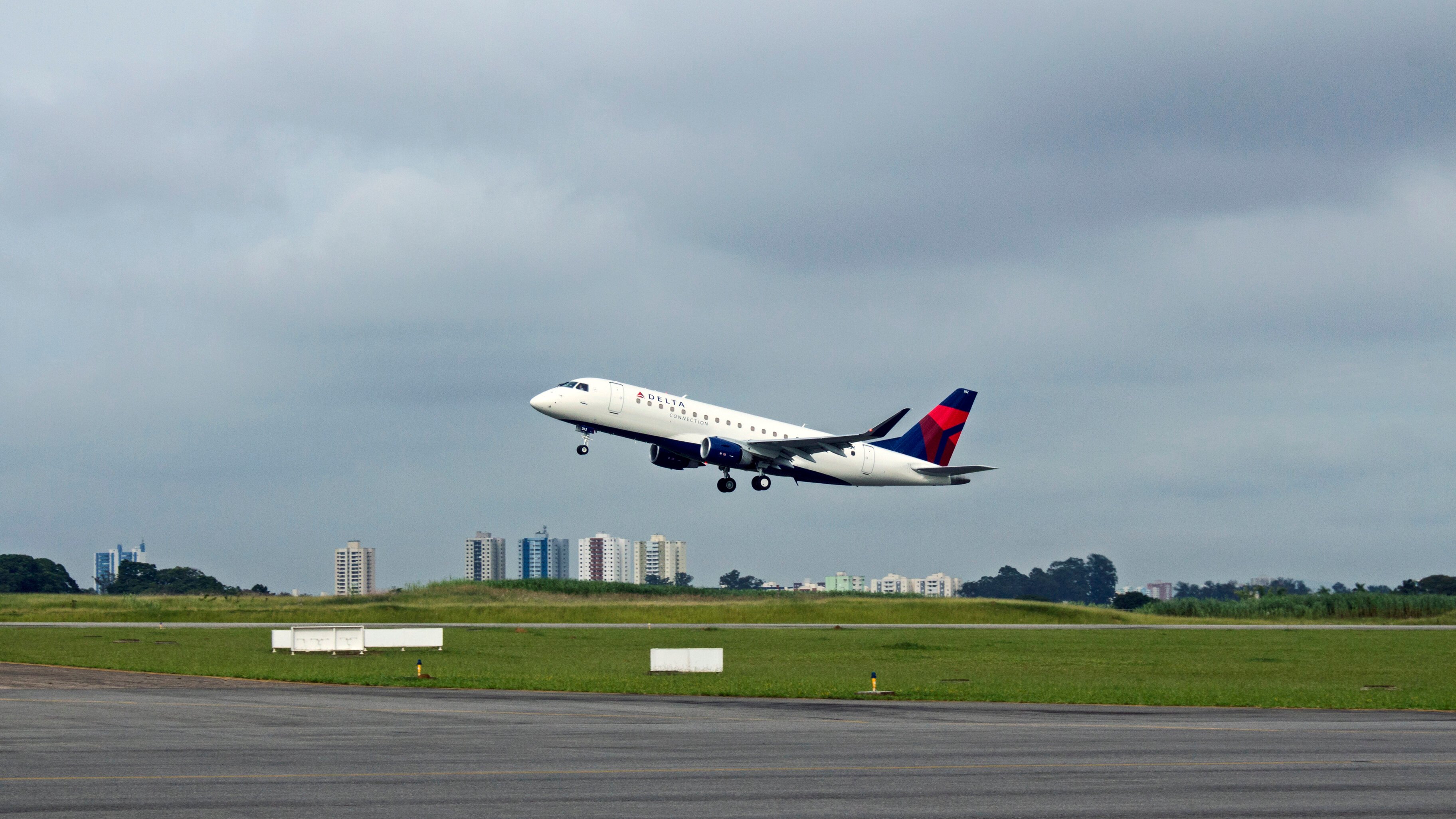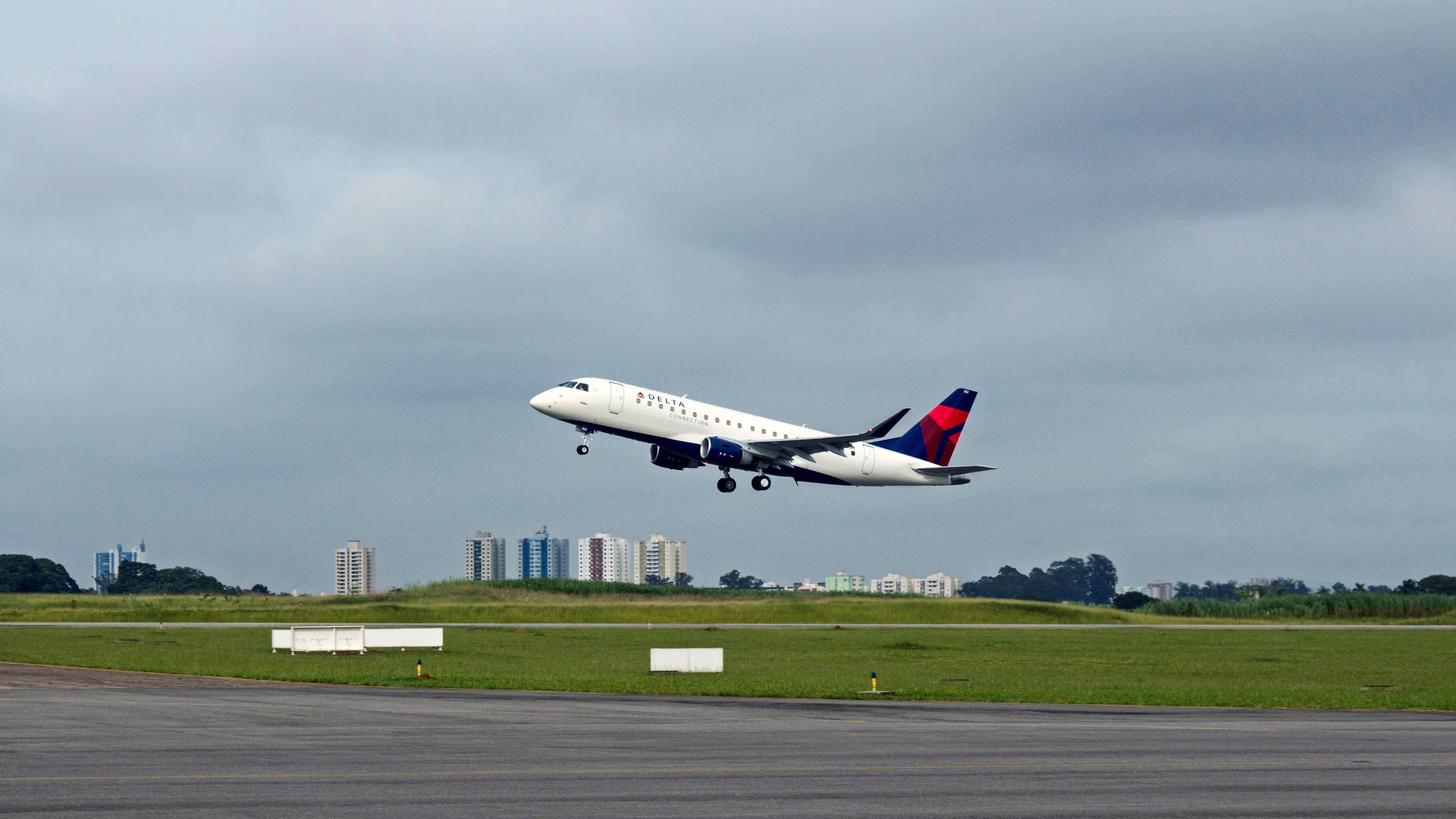On Wednesday, top regional airline operator SkyWest (SKYW +0.55%) reported EPS of $0.50, which came in ahead of the average analyst estimate of $0.46. Investors initially cheered the news, sending SkyWest shares to a new 52-week high. However, by early Thursday, shares had pulled back as much as 8% from the Wednesday high.
SkyWest is doing an admirable job of growing earnings in spite of the challenges it faces. That said, some of the improvement has been due to timing issues that will wash out in the long run. Additionally, SkyWest stock continues to trade at a premium to the airline industry at 11 times forward earnings. In light of the risks SkyWest faces, the stock does not seem like a good value right now.
A big cloud
The biggest headwind for SkyWest today is that its fleet is heavily weighted toward small regional aircraft with 50 or fewer seats: it has more than 500 planes in that category. Moreover, the vast majority of its flying is done under contract for just two major carriers: Delta Air Lines (NYSE: DAL) and United Continental (NYSE: UAL).
Both Delta and United are anxious to reduce their reliance on small regional jets, which are more costly to operate on a per-seat basis than larger regional jets and mainline aircraft. While SkyWest has long-term contracts in place with both partners, the contracts for small regional jet flying are not profitable.
In fact, SkyWest's ExpressJet segment -- which is responsible for the vast majority of its 50-seat regional jet flying -- lost more than $18 million last year. On SkyWest's earnings call on Wednesday, president Brad Rich stated that ExpressJet is still losing money, and the company expects to lose money again in 2014 before hopefully returning to profitability in 2015.
Another big question mark for SkyWest is how it will fare as Delta and United continue to remove 50-seat jets from their fleets. So far, the company has had some success in winning contracts to fly larger regional jets. Last year, SkyWest agreed to remove 66 50-seat jets from service at Delta before their terms had expired in return for a contract to fly 34 large regional jets. In May, the company won a contract to operate 40 large regional jets for United.
However, as of the end of 2012, SkyWest expected its fleet to shrink by around 200 airplanes through 2016. More broadly, SkyWest's major carrier partners are not planning to replace the 50-seat jets they are removing with an equal number of large regional jets. This means that SkyWest is likely to shrink over time. The company will therefore need to quickly reduce its fixed cost base in order to continue growing earnings, and this could be hard to pull off.
Foolish bottom line
SkyWest is doing the best it can to cope with a bad hand. The industry shift away from small regional jets has hit SkyWest hard, and it's a testament to the company's strength that it is still earning a respectable operating margin.
However, as an investor, I am only willing to bet on a company that's playing a bad hand if I can pick up its shares for a big discount. That's not the case with SkyWest right now, so I will continue to avoid this stock.








